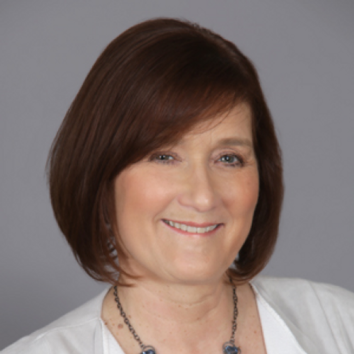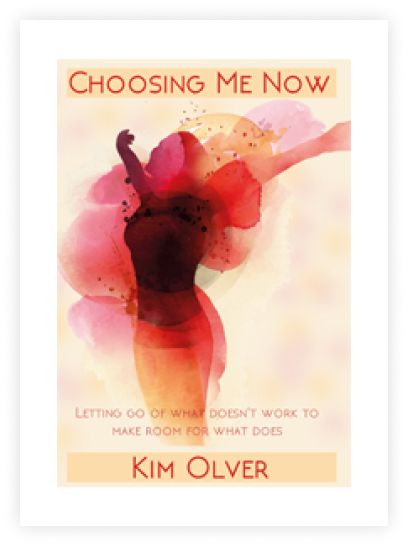Choosing Me Now
Choosing Me Now – While You Care for Everyone Else, Who is Caring for You?
If you understand the value of self-care but fail to do it consistently, then it’s time to create a system of wholistic, strategic self-care. We all need to practice self-care, especially those of us who are always busy doing for others, constantly striving for success or experiencing trauma and its aftermath. These activities pile stressors in our lives that self-care can mitigate. Most literature surrounding self-care speaks only to the physical-eat healthy, get enough rest and exercise daily-but you need to care for your mental and spiritual well-being in a way that address your unique need-strength profile. That’s what wholistic, strategic self-care involves.
In Choosing Me Now, you’ll discover:
- Your unique need-strength profile
- Which areas in your life need the most attention
- How to love yourself just as you are
- Ways to incorporate the wholistic, strategic self-care you need in your life
It seems that everyone loves talking about how important it is to practice self-care, but no one is offering a strategy. Sure, people talk about the physical aspects of self-care—getting enough sleep, eating healthy and exercising—but it stops there. What about a wholistic approach with a focus on physical, mental and spiritual self-care? Going to bed earlier won’t help you if all you are doing is lying awake worrying about things you have no control over. Eating healthy won’t feel good when you’ve banned yourself from ever indulging in those unhealthy foods you love. Exercising could be stressful when you tend to slack on other responsibilities to fit it into your schedule.
Not everyone’s self-care journey is the same, so a one-size-fits-all strategy will simply not work. You need to have a personalized plan that addresses your specific challenges, but how do you develop this plan?
Choosing Me Now will help you understand yourself and why you do the things you do. Determining your specific need-strength profile is the first step. Every one of us has five genetically-programmed basic human needs, but the ones that are strongest in you may not be the ones that are strongest in others, including those that are close to you.
Before you can practice self-care, you need to know yourself. This is what I have termed Strategic Self-Care. Practicing Strategic Self-Care means learning what you need most and targeting that area first to get the most mileage from your efforts.
My name is Kim Olver and I am a licensed clinical professional counselor, nationally certified counselor and a board-certified coach. I have made it my mission to help people get along better with the important people in their lives, including themselves, at home and at work. This huge, encompassing mission allows me to work with different people on different challenges and goals every day.

Even though I absolutely love the work I do, about three years ago, I noticed people began asking if I was taking care of myself. I found it an odd question because my goal was taking care of everyone else and I was pretty good at it. What did it mean, anyway, “taking care of myself”? Then I became a bit self-conscious, wondering what I must look like for people to keep asking me that question. I figured, of course, I was taking care of myself. No one else was doing it so I must have been, right?
I was alive and happy, but maybe not as healthy as I could be. I had just pulled myself from a deep debt in a way I was very proud of. I was only getting about four hours of sleep each night and very little exercise. I used to say my weight training was lifting heavy suitcases into my trunk and overhead compartments on planes; almost weekly, I got my steps in by walking through airports. The only thing I drank was unsweetened tea, all day long. My stress-reliever was chocolate and lunch and dinners with friends.
None of this sounds horrible. I wasn’t addicted to anything and wasn’t doing anything self-destructive, but I recognized there was something underlying what people must have been sensing from me. I wasn’t practicing Strategic Self-Care. I didn’t even know what that was.
In my futile search to find some information, I decided to go to what I know best. I took my knowledge of Choice Theory psychology and applied it to the relationship I have with myself. Looking at the relationship we have with ourselves through a Choice Theory lens provides a perfect roadmap to strengthening the relationship, once you know how to read it. Determine your unique need-strength profile and assess which needs are being satisfied and which are not. Decide where you want to direct your attention and make changes—big or small—to begin, or continue, your journey of self-care.
Practicing the readily available health tips will bring you physical health, but it doesn’t necessarily bring you mental and spiritual health. Similarly, practicing great mental health habits doesn’t translate into great physical care. Strategic Self-Care looks at the whole person—mind, body and spirit—to determine and provide a path you can travel for the rest of your life. In this practice, you will maximize your potential by fine-tuning all areas of your life in order to best satisfy your unique personal set of priorities, all without the guilt of not following what society believes constitutes good self-care
As I wrote Choosing Me Now, I was happy to apply what I learned in my own life, starting with what was most important to me. I began with my need for Freedom. I needed to get out of debt and I accomplished that without damaging my credit score. Next was my need for Connection. I began instituting special days with each of my eight grandchildren individually. I spend more time with my sons and their families. I ended a long-term relationship with a man who didn’t want the same things I wanted. Now, I am focusing on Safety & Security; since writing the book, I am happy to report I have lost 25 pounds and still counting.
When your life isn’t working the way you’d like and you are ready to make some changes, Choosing Me Now can help you develop your plan to get your life in balance again.
Receive monthly newsletter, Mental Freedom™ & tip sheet, Developing Healthy Relationships: What's Really Important
This book fits right in with my new attitude of living my life on my terms. Time out for looking to others for permission to do me. It provides great solutions for choosing to do what works for you and moves you out of that guilty feeling for those who are used to putting others first. I love this book and have added it to a list of must-read books for the ladies I coach.
Conchetta Jones 
Kim Olver has the knack of translating complex issues into simple language. Her honesty and willingness to share her journey made it easier for me to identify areas that needed change in my life and to feel more comfortable in my own skin. Choosing Me Now is an interesting and helpful read. I’m looking forward to Kim coming to Townsville, Australia in September for a Choosing Me Now Retreat
Marney Walker 
This breath-of-fresh-air book really is the ultimate in gifts to yourself! Let Kim, with her compassionate, down-to-earth energy guide you towards a deeper understanding of who you are and of what you want from your life. Choosing Me Now dares to suggest that we prioritise ourselves, become our own allies and friends and reminds us that we alone are the true pilots of our destinies if only we care enough to step into the driving seat.
Jo Watson 
Kim has taken the principles of Choice Theory and developed a road map to self-compassion and happiness. Choosing Me Now takes the reader through a journey of self-reflection and helps them understand how the world has influenced their thinking and changed their perceptions about what they want and need to feel fulfilled. It simplifies our needs into five categories and helps us prioritize them based upon our personal values. Then it helps us develop a plan to make immediate changes. Through candid personal stories about facing her own fears and her ability to laugh at her mistakes, Kim allows you to get to know her intimately. As a huge fan of Choice Theory and Reality Therapy, I am grateful for how she has taken evidenced-based psychology and formulated a method for making life-changing choices. I will be recommending this book to my clients and probably re-reading it over and over for myself.
Lavon Head 
It was a pleasure to read Choosing Me Now, not only because I know and like the author, but also because I felt like she was talking to me. I am often told I need to take care of myself, and as a therapist I find myself saying that to clients all the time. I never really stopped and thought about what that means, though. It always seemed like I was taking arbitrary shots in the dark about what I could do for myself that would feel like self care. This book explains it so well and I felt like I was reading a guide to myself and my balance. I now find myself being more aware of my choices and how they are serving my self care. It’s really helped me improve my relationship with myself.
Shruti Tekwani 
If you find that self-care is near the bottom of your list of priorities, or that your efforts toward self-care are less than effective, then this book is for you. Using personal examples based on theoretical concepts, author Kim Olver explains how making mindful choices to meet basic needs can lead to a healthier, happier life. You will find yourself on a thoughtful journey of self-assessment that will result in a personal plan for a ‘lifetime of self-love and respect.’ Buy several copies to give to others—you won’t want to loan yours out
Patricia Robey, Ed.D., LPC, NBCC 
Previous
Next



